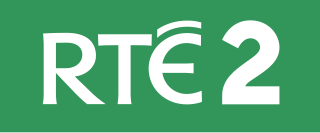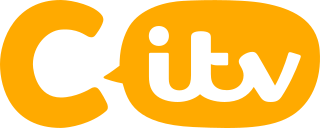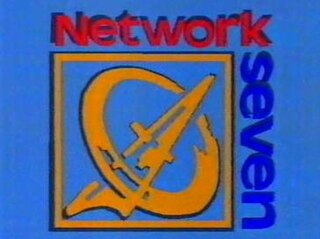
BBC Radio 1 is a British national radio station owned and operated by the BBC. It specialises in modern popular music and current chart hits throughout the day. The station provides alternative genres at night, including electronica, dance, hip hop and indie, while its sister station 1Xtra plays black contemporary music, including hip hop and R&B. Radio 1 also runs two online streams, Radio 1 Dance, dedicated to dance music, and Radio 1 Relax, dedicated to chill-out music; both are available to listen only on BBC Sounds.

The BBC News channel is a British free-to-air public broadcast television news channel owned and operated by the BBC. The channel is based at and broadcasts from Broadcasting House in the West End of London from which it is anchored during British daytime, with overnight broadcasts anchored from Washington, D.C. and Singapore. It was launched as BBC News 24 on 9 November 1997 at 5:30 pm as part of the BBC's foray into digital domestic television channels, becoming the first competitor to Sky News, which had been running since 1989.

RTÉ2 is an Irish free-to-air television channel operated by public service broadcaster RTÉ. It was launched in 1978 as the Republic of Ireland's second television channel.

Blue Peter is a British children's television entertainment programme created by John Hunter Blair. It is the longest-running children's TV show in the world, having been broadcast since October 1958. It was broadcast primarily from BBC Television Centre in London until September 2011, when the programme moved to dock10 studios at MediaCityUK in Salford, Greater Manchester. It is currently shown live on the CBBC television channel on Fridays at 5 pm. The show is also repeated on Saturdays at 11:30 am, Sundays at 9:00 am and a BSL version is shown on Tuesdays at 2:00 pm.
Sky One was a British pay television channel operated and owned by Sky Group. Originally launched on 26 April 1982 as Satellite Television, it was Europe's first satellite and non-terrestrial channel. From 31 July 1989, it became Sky One and broadcast exclusively in the United Kingdom and Ireland as British Sky Broadcasting's flagship channel. It existed until 1 September 2021, when it closed down as part of a restructuring with its EPG position taken by Sky Showcase and much of its content library moved to Sky Max.

Virgin Media One, also called Virgin One, is an Irish free-to-air television channel owned by Virgin Media Ireland, operated through its subsidiary Virgin Media Television. The channel launched on 20 September 1998, as TV Three, becoming Ireland's fourth television channel and the first commercial channel. It was known as TV3 from 2006, and then as Virgin Media One from 30 August 2018. The channel broadcasts a mix of Irish programming and acquired programming from ITV and others.

Treasure Hunt is a UK game show, based on the format of the French show La Chasse au Trésor, created by Jacques Antoine. It appeared on Channel 4 between 28 December 1982 and 18 May 1989 and was revived by BBC Two between 16 December 2002 and 2 August 2003.
T4 was a scheduling slot on Channel 4 and E4. It also aired on weekdays in the school holidays. The slot had a separate station identification on screen graphic from Channel 4 and E4. Channel 4 originally produced the strand in-house until 2002, when production was passed onto independent companies. The slot was targeted at the 16–24 age group.

The Nigerian Television Authority or NTA is a Nigerian government-owned and partly commercial broadcast station. Originally known as Nigerian Television (NTV), it was inaugurated in 1977 with a monopoly on national television broadcasting, after a takeover of regional television stations by military governmental authorities in 1976. After declining interest from the public in government-influenced programming, it lost its monopoly over television broadcasting in Nigeria in the 1990s.

BBC Breakfast is a British television breakfast news programme, produced by BBC News and broadcast on BBC One and the BBC News channel every morning from 6:00am. The simulcast is presented live, originally from the BBC Television Centre, London before moving in 2012 to MediaCityUK in Salford, Greater Manchester. The programme is broadcast daily and contains a mixture of news, sport, weather, business and feature items.

CITV is a British children's morning programming block on ITV2 and formerly a free-to-air channel owned by ITV plc. CITV, then Children's ITV, launched on 3 January 1983 as a late afternoon programming block on the ITV network for children aged 6–12. It replaced the earlier Watch It! branding and introduced networked in-vision continuity links between programmes. These links were originally pre-recorded from a small London studio up until 1987, when Central won the contract to produce live links from their Birmingham studios. In 2004, presentation of CITV was relocated to Granada Television in Manchester, which saw the demise of in-vision continuity. Nine years later, the operations moved to ITV Granada's MediaCityUK studios in Salford.
The Late Show (1989–1995) was a British television arts magazine programme that was broadcast on BBC2 weeknights at 11.15pm—directly after Newsnight—often referred to as the "graveyard slot" in terms of television scheduling.

Network 7 is a short-lived but influential youth music and current affairs programme screened on Channel 4 over two series in 1987 and 1988. The series was created by Jane Hewland and Janet Street-Porter, who was also editor of the first series.

Susanna Reid is an English television presenter and journalist. She was a co-presenter of BBC Breakfast from 2001 until 2014 alongside Bill Turnbull and Charlie Stayt. In 2013, she finished as a runner-up on the eleventh series of Strictly Come Dancing alongside dance-partner Kevin Clifton. Since 2014, Reid has been the lead presenter of the ITV Breakfast programme Good Morning Britain alongside Kate Garraway, Richard Madeley, Ed Balls and formerly Piers Morgan and Ben Shephard. She also presented Sunday Morning Live on BBC One from 2010 to 2011.
Motormouth was a Saturday morning children's entertainment series that was produced by TVS and broadcast across the ITV network for four series, running between 3 September 1988 and 4 April 1992. Each series generally ran from the autumn of one year to the spring of the next, as was common among many 'main' Saturday morning series.

Quizmania is a British interactive game show. The show was devised by Chuck Thomas, Debbie King, and Simone Thorogood and produced by FremantleMedia for Information TV and ITV. Similar to other premium-line call-in shows, viewers on the TV version of Quizmania were encouraged to phone a premium-rate number in order to provide an answer to a quiz question.
RTÉ One is an Irish free-to-air flagship television channel owned and operated by RTÉ. It is the most-popular and most-watched television channel in the country and was launched as Telefís Éireann on 31 December 1961, it was renamed RTÉ in 1966, and it was renamed as RTÉ 1 upon the launch of RTÉ 2 in 1978. It is funded partly by the government's licence fee; the remainder of the funding is provided by commercial advertising. Because RTÉ is funded partly by the licence fee it shows considerably fewer advertisements than most other channels available in Ireland and Northern Ireland.
Top Gear is a British motoring magazine and entertainment television programme. It is a revival by Jeremy Clarkson and Andy Wilman of the 1977–2001 show of the same name for the BBC, and premiered on 20 October 2002. The programme focuses on the examination and reviewing of motor vehicles, primarily cars, though this was expanded upon after the broadcast of its earlier series to incorporate films featuring motoring-based challenges, special races, timed laps of notable cars, and celebrity timed laps on a course specially-designed for the relaunched programme. The programme drew acclaim for its visual and presentation style since its launch, which focused on being generally entertaining to viewers, as well as criticism over the controversial nature of its content. The show was also praised for its occasionally-controversial humour and lore existing in not just the automotive community but in the form of internet memes and jokes. The programme was aired on BBC Two until it was moved to BBC One for its twenty-ninth series in 2020.
This is a timeline of children's programming on the British ITV network and ITV Digital Channels. The timeline starts in 1980 when ITV launched its first branding for children's programming, although programmes for children had been broadcast on ITV from the earliest years of the network.











